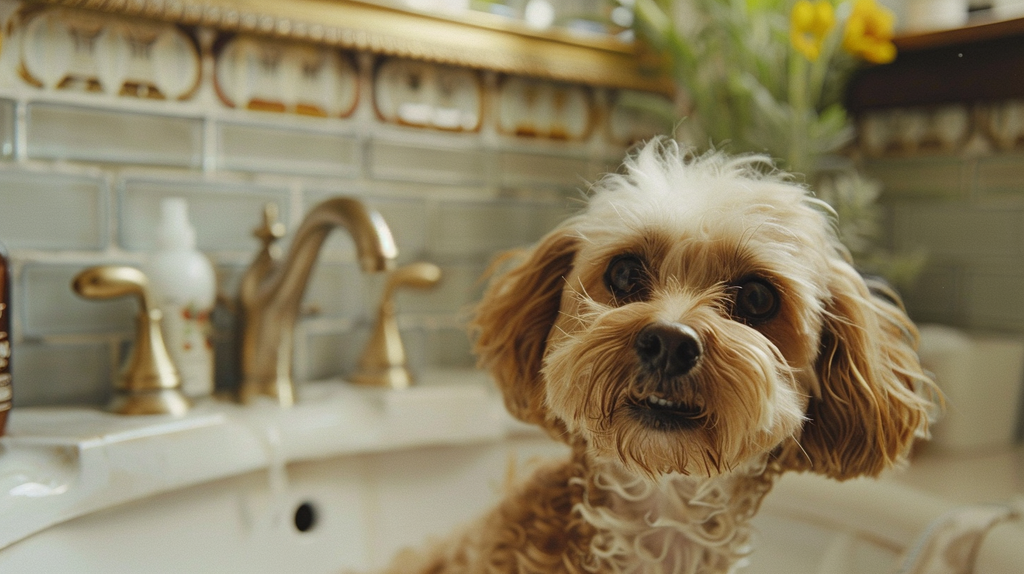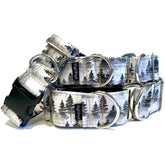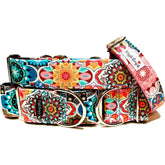Dog Dental Care: Ultimate Guide to Healthy Teeth & Gums

- Key Takeaways
- Importance of Dog Dental Care
- Causes of Pet Dental Problems
- Preventing Tartar Accumulation in Dogs
- At-Home Preventative Care for Dog’s Teeth
- Proper Techniques for Brushing Dog's Teeth
- Choosing the Right Dog Dental Products
- Professional Dental Cleanings for Dogs
- Cost of Dog Teeth Cleaning
- Pet Insurance Coverage for Dog Teeth Cleaning
- Summary
-
Frequently Asked Questions
- Why is dental care important for dogs?
- What causes dental problems in pets?
- How can I prevent tartar accumulation in my dog?
- What's the right way to brush my dog's teeth?
- How do I choose suitable dental products for my dog?
- Are professional cleanings necessary for dogs?
- What does getting my dog's teeth cleaned cost?
- Does pet insurance cover teeth cleaning?
Did you know that 80% of dogs show signs of dental disease by age three? That's a staggering statistic that highlights the importance of dog dental care. It's not just about bad breath; it’s about overall health, from preventing tooth loss to avoiding serious diseases linked to oral hygiene. Yet, navigating the world of brushes, toothpaste, and dental treats can feel like decoding an ancient language. We're here to cut through the confusion with straightforward advice and practical tips. Whether you're a seasoned dog owner or new to the pet parent club, enhancing your furry friend's dental routine is simpler than you think—and could make all the difference in their well-being.
Key Takeaways
-
Regular dental care is crucial for maintaining your dog's overall health, preventing diseases that can affect more than just their mouth.
-
Common causes of dental problems in dogs include tartar buildup, poor diet, and lack of proper dental care routines.
-
Preventing tartar accumulation is possible with daily brushing, using dental chews, and ensuring a healthy diet.
-
Learning the proper techniques for brushing your dog's teeth can significantly reduce the risk of dental diseases and should be part of your daily routine.
-
When choosing dental products for your dog, opt for those specifically designed for pets and approved by veterinary organizations to ensure safety and effectiveness.
-
Professional dental cleanings, though potentially costly, are an essential part of your dog's dental care regimen and can be more affordable with pet insurance coverage.
Importance of Dog Dental Care
Prevents Disease
Regular dental care is vital for your dog's overall health. It prevents gum disease and tooth loss, which are common issues in dogs. Gum disease starts with plaque buildup on the teeth. If not removed, it turns into tartar. This can lead to inflammation and infection of the gums.
Dogs don't show pain like humans do. So, they might be suffering without you knowing. Regular check-ups can catch these problems early.
Systemic Health Risks
Poor oral health doesn't just affect your dog's mouth; it can harm their entire body. Bacteria from dental disease can enter the bloodstream and spread to organs like the heart and kidneys.
Studies have linked dental disease in dogs with systemic conditions such as heart disease. Keeping your dog’s teeth clean helps more than just their breath—it could extend their life.
Bad Breath Warning
Bad breath isn’t just unpleasant; it’s often the first sign of dental problems in dogs. While many pet owners accept bad breath as a part of owning a dog, it shouldn't be ignored.
This foul odor could indicate that harmful bacteria are at work beneath the gum line, causing damage that might not yet be visible.
-
Brushing your dog's teeth regularly
-
Providing them with dental chews
-
Scheduling professional cleanings
are effective ways to combat bad breath while maintaining good oral health.
Causes of Pet Dental Problems
Oral Hygiene
Poor oral hygiene is a leading cause of dental issues in pets. Without regular brushing, plaque builds up on the teeth. This turns into tartar over time. Tartar is hard and sticks to the teeth, causing periodontal disease.
Periodontal disease doesn't just affect the mouth. It can lead to other health issues too. These include heart, liver, and kidney problems. Regular cleaning prevents these problems by removing plaque before it becomes tartar.
Genetic Factors
Some dog breeds are more prone to dental problems than others. Small breeds often have crowded teeth. This makes them more susceptible to periodontal disease.
Breeds with short snouts face similar challenges. Their tooth alignment leads to increased plaque and tartar formation.
Understanding your pet's genetic predisposition helps in preventive care planning.
Diet and Chewing Habits
What dogs eat affects their dental health significantly.
-
Dry food helps clean teeth as they chew.
-
Soft food might stick to the teeth and promote plaque buildup.
Chewing habits also play a role in maintaining oral health.
-
Chewing toys can help clean the teeth naturally.
-
However, chewing on hard objects can cause tooth damage or breakage.
A balanced diet combined with suitable chewing activities promotes healthy teeth and gums.
Preventing Tartar Accumulation in Dogs
Regular Brushing
Regular brushing is crucial for your dog's dental health. It removes plaque before it hardens into tartar. Start slowly to get your dog used to the process. Use a toothbrush designed for dogs and pet-safe toothpaste.
Brushing should be a daily routine. Focus on the gumline, where plaque tends to accumulate most. Consistency is key. Over time, this habit can significantly reduce tartar buildup.
Dental Chews
Dental chews and toys are more than just treats or playthings; they help maintain oral health. When choosing dental chews:
-
Look for those that are vet-recommended.
-
Ensure they're suitable for your dog's size and dietary needs.
-
Monitor your pet during chew time to prevent choking hazards.
These items work by mechanically scraping off plaque from the teeth as your dog chews them, helping to keep tartar at bay.
Healthy Diet
A diet designed for dental health can greatly impact tartar accumulation. Some foods are formulated specifically to reduce plaque and tartar buildup.
-
Dry kibble can be more effective than wet food at cleaning teeth through chewing action.
-
Special dental diets have ingredients that minimize plaque formation.
Water additives can offer extra help in maintaining oral hygiene by targeting bacteria in the mouth without needing direct brushing.
At-Home Preventative Care for Dog’s Teeth
Early Routine
Starting a dental care routine early is crucial. Young dogs adapt better to new habits, including teeth brushing. This early start can prevent many dental issues later on.
Introducing your dog to toothbrushing can be a fun activity. Use positive reinforcement like treats and praise. Make sure the experience is enjoyable for them. This way, they'll associate toothbrushing with something positive.
Proper Products
Always use toothpaste formulated for dogs. Human toothpaste contains ingredients that are toxic to pets, such as fluoride and xylitol.
There are various flavors of dog toothpaste available. Chicken, beef, or peanut butter flavors make the process appealing to your pet. Experiment with different types until you find one your dog loves.
Daily Brushing
Daily brushing is the gold standard in preventing dental diseases like gingivitis in dogs. It removes plaque before it turns into tartar, which is much harder to get rid of without professional help.
For those days when brushing isn’t possible, consider using tooth wipes as an alternative. They're not as effective but can still help clean the teeth and gums somewhat.
Brushing your dog's teeth might seem daunting at first but becomes easier over time both for you and your pet.
Remember:
-
Start slowly to build trust.
-
Praise and reward after each session.
-
Be consistent with daily brushing.
Proper Techniques for Brushing Dog's Teeth
Choosing Tools
Selecting the right tools is crucial. A soft-bristled toothbrush or a finger brush specifically designed for dogs is essential. These tools are gentle on your dog's gums and effective at removing plaque.
Soft-bristled brushes come in various sizes to fit different mouth shapes. Finger brushes slip over your fingertip, giving you better control. Both options are safe and efficient but choosing one depends on your comfort and your dog’s preference.
Brushing Technique
The technique matters just as much as the tool you use. Focus on the gum line, where plaque tends to accumulate most. Gentle circular motions help dislodge debris without causing discomfort.
Start by lifting your dog's lip to expose their teeth and gum line better. Then, with a soft-bristled toothbrush or finger brush, gently clean each tooth focusing on the area near the gum line. Remember, patience is key; not all dogs will be receptive initially.
Acclimation Process
Getting your dog used to brushing takes time and patience. Start gradually to reduce stress associated with tooth brushing routines.
Initially, let them sniff and lick the toothbrush or finger brush so they become familiar with it as an object of interest rather than fear. Next, introduce pet-safe toothpaste by letting them taste it from your finger. Once comfortable, gently rub their teeth with your finger before using a brush. This step-by-step approach helps build positive associations with brushing sessions.
Choosing the Right Dog Dental Products
Vet-Approved Products
Finding the right products for your dog's dental care is crucial. Look for items approved by veterinary oral health councils. These products meet specific standards and are safe for your pet.
Many options exist, from toothbrushes to mouthwashes designed especially for dogs. Always check the label to ensure they're vet-approved. This step helps prevent harm to your dog’s teeth and gums.
Safe Chew Toys
Not all toys are good for your dog's dental health. Avoid hard bones and toys that can damage their teeth. Instead, opt for safer alternatives like rubber or nylon chews specifically made for dental cleaning.
Dog chews come in various shapes and sizes, catering to different breeds and chewing habits. Some even have ridges or nubs that help clean teeth as your dog plays with them.
Water Additives
Water additives are a simple way to enhance daily brushing routines. Just add them to your dog’s water bowl, and they help reduce plaque buildup throughout the day.
These additives often contain ingredients that freshen breath and promote healthy gums without needing extra effort from you or discomfort for your pet.
Choosing the right dental care products is essential in keeping our furry friends happy and healthy. Remember:
-
Look only at vet-approved items.
-
Avoid harmful toys.
-
Use water additives as an easy supplement.
Following these guidelines ensures proper oral hygiene while preventing potential issues down the line.
Professional Dental Cleanings for Dogs
Annual Visits
Professional dental cleanings are crucial for your dog's oral health. Veterinary dentists recommend these cleanings once a year. This routine care can stop dental diseases from advancing to serious stages.
Dogs, both large and small, benefit greatly from these annual check-ups. The vet examines the mouth for any signs of trouble. Early detection means easier management of potential issues.
Sedation Cleaning
Sedation is key during teeth cleaning. It keeps dogs calm, allowing vets to clean thoroughly below the gumline where bacteria like to hide. This process involves general anesthesia, ensuring safety and comfort for your furry friend.
The use of anesthesia might sound scary, but it's quite safe when done by professionals. Your dog won't feel any pain during the procedure. Plus, it allows the vet to do their best work without any wiggling or squirming.
X-ray Assessment
Sometimes, an x-ray is necessary to see what's happening beneath the surface. These images help assess the health of bones and tooth roots in dogs' mouths.
X-rays can reveal hidden problems that aren't visible during a regular exam. They're an important tool in maintaining your dog's oral health.
Polishing Finish
After removing tartar and plaque, polishing is next. This step smooths out scratches on teeth surfaces. Smooth teeth are less likely to hold onto harmful bacteria later on.
Polishing completes the cleaning process, leaving your dog with a healthier mouth.
Choosing suitable dog dental products complements professional care well. Together they form a solid defense against oral diseases in dogs. Remember: A mix of home care and professional treatments works best.
Cost of Dog Teeth Cleaning
Price Variability
The cost of dog teeth cleaning can swing widely. It's not a one-price-fits-all service. Your location plays a big role in how much you'll pay. Big cities often charge more than smaller towns.
Vet practices have their own pricing too. Some include extra services in their base price, making it seem higher at first glance. But, these might actually save you money overall.
Additional Costs
When budgeting for your dog's dental care, remember the extras. Anesthesia is almost always needed and adds to the bill. If your dog needs any teeth removed, that's an extra charge as well.
Medications for aftercare are another potential cost. These help prevent infections and manage pain but do add up.
Preventative Care
Preventative care can save you money down the line.
-
Regular brushing at home helps reduce plaque build-up.
-
Dental chews and toys also contribute to cleaner teeth.
-
Annual check-ups catch issues early when they're cheaper to treat.
Pet Insurance Coverage for Dog Teeth Cleaning
Policy Details
Understanding the policy details is crucial. Not all plans cover dental cleanings and procedures.
Before signing up, review the policy carefully. Look for what's specifically mentioned about dog dental care. Some policies may include coverage for accidents affecting the teeth but not routine cleanings.
On the other hand, certain insurance providers offer comprehensive plans. These might cover both emergency dental procedures and preventive care like teeth cleaning. It's essential to read the fine print or talk directly with an insurance representative to clarify these points.
Preventative Care
Many pet owners don't realize that some insurers offer preventative care endorsements. These can provide additional coverage for routine dog teeth cleaning.
Adding such endorsements to your policy might increase your premium slightly. However, it could save you money in the long run by covering regular dental check-ups and cleanings.
Consider this: without preventative care coverage, you're likely paying out of pocket for every cleaning session following our discussion on costs in the previous section. With it, those expenses could be significantly reduced or even fully covered depending on your plan details.
Choosing Wisely
When selecting a pet insurance plan with dog dental care in mind:
-
Review multiple policies.
-
Compare their coverage regarding dental health.
-
Consider if adding a preventative care endorsement is right for you.
Remember:
-
Not all plans are created equal.
-
What one insurer considers "routine" another might not cover at all.
Summary
Your pup’s pearly whites need as much TLC as your own. From battling tartar buildup to choosing the right dental products, we've chewed over everything you need to keep those canine chompers in check. It's not just about a dazzling smile; it’s about dodging health issues down the line. Think of it this way: a little brush now saves a lot of hassle (and cash) later. And hey, if the thought of wrestling with toothbrushes and doggy mouths every day makes you wince, remember professional cleanings are a thing. They might pinch your wallet, but they're worth their weight in dog treats for the peace of mind they bring.
So, what's the next step? Dive in and make dental care a non-negotiable part of your dog's routine. Your furry friend might not thank you in words, but those healthy gums and teeth will speak volumes. Let's not wait until there's trouble brewing in that mouth. Grab that toothbrush and let’s get brushing!
Frequently Asked Questions
Why is dental care important for dogs?
Just like in humans, poor dental health in dogs can lead to problems like bad breath, tooth loss, and even more serious conditions affecting the heart and kidneys. It's all about keeping your furry friend happy and healthy.
What causes dental problems in pets?
The main villain behind pet dental woes is tartar buildup from leftover food particles. This can lead to gum disease and infections if not tackled early on. Think of it as letting dishes pile up in the sink – nobody wants that!
How can I prevent tartar accumulation in my dog?
Regular brushing is your best defense against tartar. Also, providing chew toys and special dental treats helps keep those chompers clean by naturally scraping off plaque.
What's the right way to brush my dog's teeth?
Think of it as a bonding activity! Use a soft-bristled toothbrush or finger brush designed for dogs, along with pet-safe toothpaste. Gently brush in circular motions focusing on the gum line - no need to be a dentist about it.
How do I choose suitable dental products for my dog?
Look for vet-recommended brands that specifically target plaque and tartar control. Avoid human products – fluoride is a no-go for pooches.
Are professional cleanings necessary for dogs?
Yes! Even with diligent at-home care, professional cleanings reach where brushes can't go — preventing potential health issues down the road. Consider it a spa day for your pup’s pearly whites.
What does getting my dog's teeth cleaned cost?
Costs vary depending on location and services needed but expect anywhere from $200 to $800. It might pinch your wallet now but think of it as an investment in avoiding heftier vet bills later.
Does pet insurance cover teeth cleaning?
Many plans do cover routine cleanings or offer wellness add-ons that include dental care. Check with your provider because having insurance chip in feels like finding money in an old coat pocket – always a pleasant surprise!


















































































































